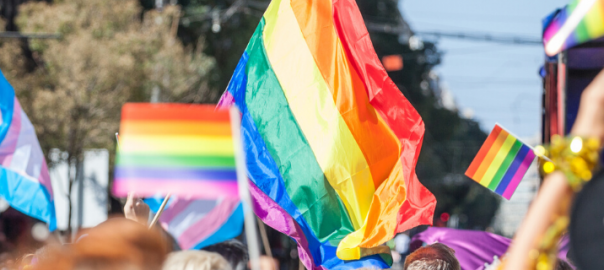This blog is provided by the IPR Center for Diversity, Equity, and Inclusion based on the original study in the Journal of Public Relations Research Pride month reminds us that we all deserve the right to be who we are, as we are, and to define ourselves on our own terms. It also reminds us that amid … Continue reading Taking Pride in Transgender Communicators of Color
- Home
- Taking Pride in Transgender Communicators of Color
All posts by Erica Ciszek

Summary In this study, a process is presented for changing stigmatizing portrayals of a group of people. This process parallels Burke’s (1989) redemption ritual for humanity. This research added detail to Burke’s redemption ritual for influencing representations and examined how an LGBT advocacy organization and a mental illness advocacy organization influence cultural byproducts that result … Continue reading Changing Cultural Stigma: A Pilot study of LGBT and Mental Illness Organizations →

This research is summarized by IPR from the original journal article published in the Journal of Communication Erica Ciszek, Ph.D., researched how activists are producers of strategic communication for social change. Drawing from critical public relations research, this article argues for activism as cultural intermediation to bridge the disciplines of CDSC and strategic communication. To answer these … Continue reading Activist Strategic Communication for Social Change: A Transnational Case Study of Lesbian, Gay, Bisexual, and Transgender Activism →

This summary of the original journal article was written by Valerie Gonzalez, a member of the IPR Street Team. Dr. Erica Ciszek explored the role of trust when communicating with LGBTQ publics. In-depth phone interviews were conducted with 33 LGBTQ practitioners with experience in LGBTQ strategic communication. Key Terms:— Cultural competency refers to organizations being well-versed … Continue reading We Are People Not Transactions: Trust as a Precursor to Dialogue With LGBTQ Publics →

Dr. Erica Ciszek presented a case for queer theorizing in public relations theory building. In this report, Dr. Ciszek argues that identity is ever changing and fluid. She posits that this idea of identity should encompass the identity of public relations as an industry and field of study. She presents the case to “queer” the … Continue reading Queering PR: Directions in Theory and Research for Public Relations Scholarship →

Dr. Erica Ciszek and Dr. Kate Pounders identified the components of authentic communication with LGBTQ publics and examined potential differences in what constitutes authentic communication for LGBTQ publics compared to other publics.

This abstract is summarized by IPR from the original article published in the Public Relations Review. Erica Ciszek, Ph.D., researched the contemporary articulation of LGBT activism and LGBT youth outreach as a historically contextual moment. Ciszek used the cultural-economic framework model (CEM; Curtin & Gaither, 2005), to examine identities in terms of what norms … Continue reading Public Relations, Activism, and Identity: A Cultural-Economic Examination of Contemporary LGBT Activism →

Abstract This article examines a contemporary articulation of lesbian, gay, bisexual, and transgender (LGBT) activism, LGBT youth outreach, as a historically contextual moment. By way of a cultural-economic examination, this study explores the identities constructed by both producers and consumers of an LGBT activist campaign. The cultural-economic model (CEM; Curtin & Gaither, 2005) provides a … Continue reading Public Relations, Activism And Identity: A Cultural-Economic Examination Of Contemporary LGBT Activism →
Summary This exploratory qualitative case study examines the role of participatory media in nonprofit public relations. Through a case study of the “It Gets Better Project,” this research examines how nonprofit organizations can provide a platform for publics to amplify their voices, and in turn how publics can work to carry forth the message of … Continue reading Advocacy and Amplification: Nonprofit Outreach and Empowerment Through Participatory Media →
